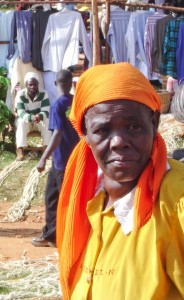 Rural development in sub-Saharan Africa is a vast area of activity embracing one of the most intractable problems of the 20th – 21st centuries. Much has been done since the end of the colonial era in the 1960s and a great deal has been achieved and yet the problems remain endemic and a real blight on the progress of human achievement. In almost all countries there remains enormous challenges in all sectors – health, education, agriculture, housing, financial systems, human rights, and basic services such as energy, water supply, transport and communications. The great irony is that today – March 30, 2010 – whilst millions of people carried dirty water to impoverished homes all over Africa, scientists celebrated the first successful particle collision in the Large Hadron Collider in Cern, Switzerland in the biggest machine ever built costing untold billions of dollars.
Rural development in sub-Saharan Africa is a vast area of activity embracing one of the most intractable problems of the 20th – 21st centuries. Much has been done since the end of the colonial era in the 1960s and a great deal has been achieved and yet the problems remain endemic and a real blight on the progress of human achievement. In almost all countries there remains enormous challenges in all sectors – health, education, agriculture, housing, financial systems, human rights, and basic services such as energy, water supply, transport and communications. The great irony is that today – March 30, 2010 – whilst millions of people carried dirty water to impoverished homes all over Africa, scientists celebrated the first successful particle collision in the Large Hadron Collider in Cern, Switzerland in the biggest machine ever built costing untold billions of dollars.
‘Development’ has not brought improvements everywhere – I recall an issue which arose several years ago with the building of a highway essentially connecting Windhoek in Namibia with Johannesburg and the industrial heartland of South Africa. The highway cut across the Kalahari impacting both the migration routes of wildlife and the lives of nomadic San clans. The San people in question had followed a finely tuned lifestyle for hundreds if not thousands of years. They had very little by way of goods and property as they were constantly on the move. Could they have been described as poor? They were in a stable state of living off the land and had no need of substantial accumulated possessions. When the road came it was fenced, boreholes were sunk to provide for construction requirements, migration routes were closed, cattle ranching was extended and today many of the San people, having found it impossible to continue their age old customs, now live in shanty towns. Now they are unquestionably poor, although they arguably have more possessions than before. Once Pandora’s Box has been opened, it is not possible to close it.
Right across the continent the problems of increasing population pressure, degrading environments and debilitating poverty, exacerbated by recurrent cycles of corrupt leadership, drag countries and whole peoples into a toxic vortex from which there seems to be no escape. Within this context the incredible resilience of ordinary people is truly amazing. Africa remains vibrant with colour and light despite what would count as deep perpetual recession elsewhere in the world, with the bulk of the populations’ earning power never ever having been above $2 a day. It is almost impossible to compare the two worlds of the industrial north and sub-Saharan Africa. The annual budget of a single county in which I used to live in the US (Fairfax County) was $5.8 billion – 5 times larger than the entire national budget of Malawi which I was working in at the time!
Having been born in Africa, I have worked in the field of natural resource management and development (water) all of my 30 year career in a number of different capacities, all in Africa:- in the private sector, in the NGO (non-profit) sector, in government as a Ministerial Adviser, as an independent consultant and for an international development agency (the World Bank); I have worked in 22 African countries and I have worked at different levels, from living in villages to flying around the continent at an international level. I still have precious few answers – if any. Being engaged in development work for the long haul is not for the faint of heart – neither is it for the arrogant and self opinionated. And yet the show goes on …
Fundamental questions need to be asked. What is the end-game to which all the development efforts are targeted – is it that all countries must reach ‘middle income’ industrial economic status, as compared with the industrial north? Is a consumer economy right as a ‘one-size-fits-all’ model? Is this achievable, let alone sustainable? I think that I have reached the place where I believe that Africa alone must resolve what future it wants. Continuing to blame colonialism will not get Africa anywhere, continuing to rely on foreign funds only perpetuates a twisted notion of entitlement. In the water sector alone sufficient funds have been pumped into Africa over the past decades to meet the needs of the entire population a couple of times over and yet more than half the population remain with no formal water supply on a day-to-day basis – money is not the problem and will not be the solution. Africa is an immensely rich continent filled with dreadfully poor people – how is this possible. Enlightened un-selfserving leadership is needed, put and kept in place by a public which will accept nothing less.
So much for my opinions. It is not easy to have spent a career in a line of endeavour in which I have entirely believed, only to reach a point where I question what has really been achieved. Perhaps just another brick in the wall is sufficient?